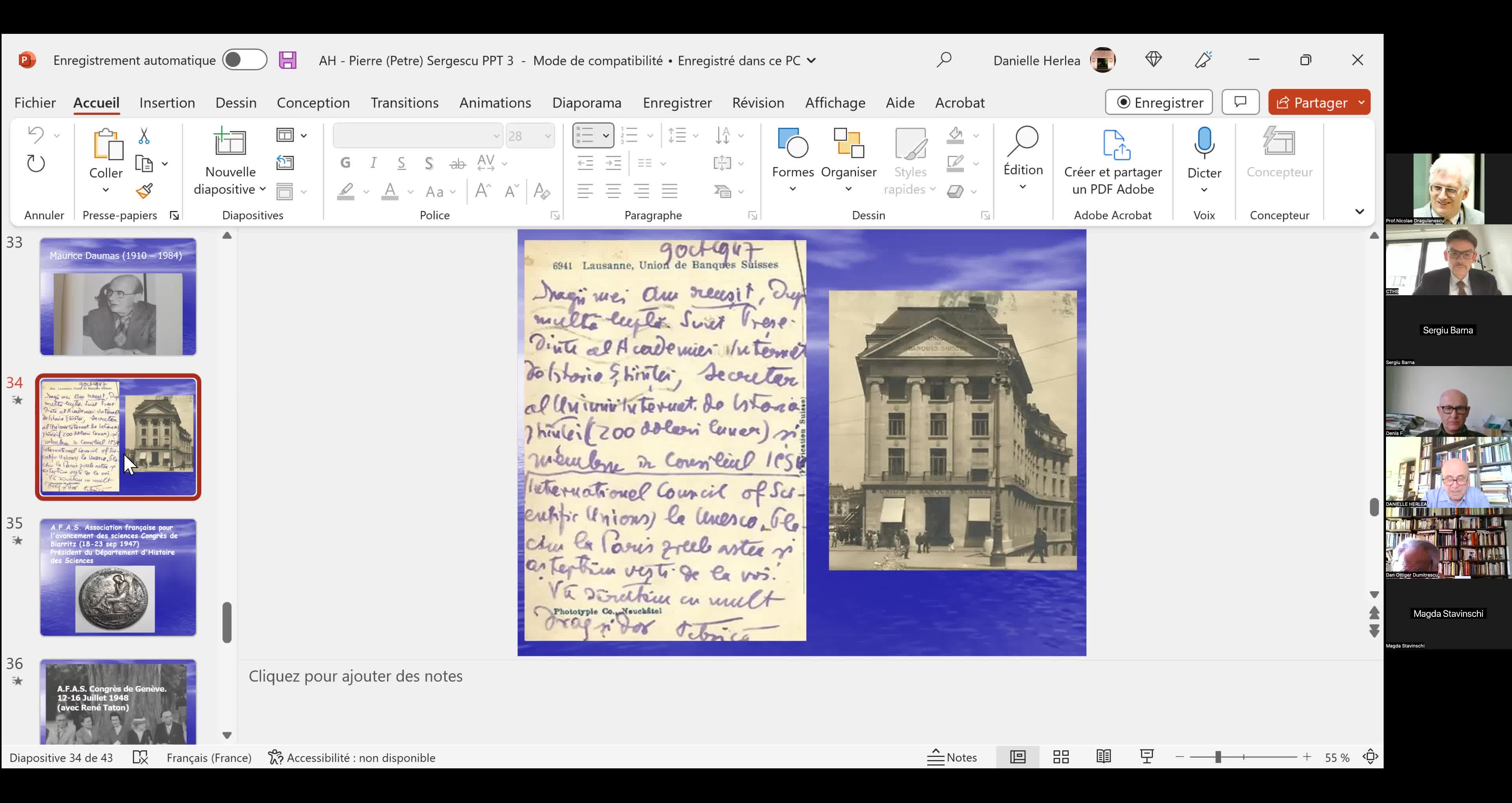Notice
Andras Vasy - The Feynman propagator and its positivity properties
- document 1 document 2 document 3
- niveau 1 niveau 2 niveau 3
Descriptif
One usually considers wave equations as evolution equations, i.e. imposes initial data and solves them. Equivalently, one can consider the forward and backward solution operators for the wave equation; these solve an equation Lu=f" style="position: relative;" tabindex="0" id="MathJax-Element-1-Frame">Lu=f, for say f" style="position: relative;" tabindex="0" id="MathJax-Element-2-Frame">f compactly supported, by demanding that u" style="position: relative;" tabindex="0" id="MathJax-Element-3-Frame">u is supported at points which are reachable by forward, respectively backward, time-like or light-like curves. This property corresponds to causality. But it has been known for a long time that in certain settings, such as Minkowski space, there are other ways of solving wave equations, namely the Feynman and anti-Feynman solution operators (propagators). I will explain a general setup in which all of these propagators are inverses of the wave operator on appropriate function spaces, and also mention positivity properties, and the connection to spectral and scattering theory in Riemannian settings, as well as to the classical parametrix construction of Duistermaat and Hörmander.
Intervention / Responsable scientifique
Thème
Documentation
Liens
Avec les mêmes intervenants et intervenantes
-
Andras Vasy - Microlocal analysis and wave propagation (Part 1)
VasyAndrásIn these lectures I will explain the basics of microlocal analysis, emphasizing non elliptic problems, such as wave propagation, both on
-
Andras Vasy - Quasilinear waves and trapping: Kerr‐de Sitter space
VasyAndrásIn this talk I will describe recent work with Peter Hintz on globally solving quasilinear wave equations in the presence of trapped rays,
Sur le même thème
-
Tuan Ta Pesao : écritures de sable et de ficelle à l'Ile d'Ambrym
VandendriesscheEricCe film se déroule au Nord de l’île d’Ambrym, dans l’archipel de Vanuatu, en Mélanésie...
-
"Le mathématicien Petre (Pierre) Sergescu, historien des sciences, personnalité du XXe siècle"
HerléaAlexandreAlexandre HERLEA est membre de la section « Sciences, histoire des sciences et des techniques et archéologie industrielle » du CTHS. Professeur émérite des universités, membre effectif de l'Académie
-
Webinaire sur la rédaction des PGD
LouvetViolaineRédaction des Plans de Gestion de Données (PGD) sous l’angle des besoins de la communauté mathématique.
-
Alexandre Booms : « Usage de matériel pédagogique adapté en géométrie : une transposition à interro…
« Usage de matériel pédagogique adapté en géométrie : une transposition à interroger ». Alexandre Booms, doctorant (Université de Reims Champagne-Ardenne - Cérep UR 4692)
-
P. Burkhardt - Pointwise lower scalar curvature bounds for C0 metrics via regularizing Ricci flow
Burkhardt-GuimPaulaWe propose a class of local definitions of weak lower scalar curvature bounds that is well defined for C0 metrics. We show the following: that our definitions are stable under greater-than-second
-
R. Bamler - Compactness and partial regularity theory of Ricci flows in higher dimensions
BamlerRichard H.We present a new compactness theory of Ricci flows. This theory states that any sequence of Ricci flows that is pointed in an appropriate sense, subsequentially converges to a synthetic flow.
-
C. Li - Classifying sufficiently connected PSC manifolds in 4 and 5 dimensions
LiChaoIn this talk, I will discuss some recent developments on the topology of closed manifolds admitting Riemannian metrics of positive scalar curvature. In particular, we will prove if a closed PSC
-
Y. Lai - A family of 3d steady gradient Ricci solitons that are flying wings
LaiYiWe find a family of 3d steady gradient Ricci solitons that are flying wings. This verifies a conjecture by Hamilton. For a 3d flying wing, we show that the scalar curvature does not vanish at
-
T. Ozuch - Noncollapsed degeneration and desingularization of Einstein 4-manifolds
OzuchTristanWe study the noncollapsed singularity formation of Einstein 4-manifolds. We prove that any smooth Einstein 4-manifold close to a singular one in a mere Gromov-Hausdorff (GH) sense is the result
-
D. Tewodrose - Limits of Riemannian manifolds satisfying a uniform Kato condition
TewodroseDavidPresentation of a joint work with G. Carron and I. Mondello where we study Kato limit spaces.
-
A. Mondino - Time-like Ricci curvature bounds via optimal transport
MondinoAndreaThe goal of the talk is to present a recent work in collaboration with Cavalletti (SISSA) on optimal transport in Lorentzian synthetic spaces. The aim is to set up a “Lorentzian analog” of the
-
M. Lesourd - Positive Scalar Curvature on Noncompact Manifolds and the Positive Mass Theorem
LesourdMartinThe study of positive scalar curvature on noncompact manifolds has seen significant progress in the last few years. A major role has been played by Gromov's results and conjectures, and in














